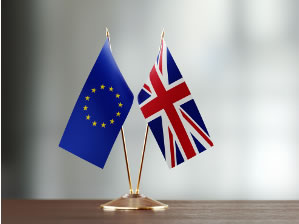H&F Council Count the Cost of No-deal Brexit
Report warns of shortages of builders and nurses as well as inflation expense
The local economic “risks” that a no-deal Brexit could pose to Hammersmith and Fulham Council have been laid bare in a new report.
Shortages of builders and nurses, as well as inflation increases, are among the borough’s top concerns.

It was discussed by councillors and heads of departments at meeting on September 23.
Tory councillor Donald Johnson, the director of a PR company, started the meeting by asking: “There’s got to be a flipside. One makes an opportunity out of circumstances. So will you be covering any aspects that are positive?”
The reply from Peter Smith, the head of policy and strategy, was: “No this is looking at risks of negative impacts.”
An estimated 30,000 EU citizens live in Hammersmith and Fulham, out of a total population of about 185,000 people.
Some 8,300 EU citizens had applied to the Home Office for settled status, according to the latest figures available to the council, which were provided in June.
Mr Smith said they don’t know how many applications have been approved, but that the next set of figures will be available in November.
Across Britain, 1.5 million people had applied for settled status by the end of June.
Councillor Patricia Quigley, (Labour) said: “It’s very concerning that 22,000 people haven’t applied, and you’re saying new figures won’t be available until November.
“Excuse me if I sound stupid, but aren’t we supposed to have left by the end of October?”
Mr Smith said EU residents have until the end of 2020 to apply, even if there is a no-deal Brexit.
Health chiefs’ “biggest concern” is how they will continue to find staff and nurses for care homes, and hospitals.
Official figures show the number of nurses from the EU registering to work in the UK dropped by 96 per cent by January 2017, and the rate has continued to fall.
“This will compound the existing challenges around recruiting nurses to work in care homes and finding suitably skilled and qualified nursing home managers,” the report said.
A shortage of care workers and nurses could cause an increase in wages, meaning the council’s spend on services would rise by nearly £1 million per year if wages increased two per cent.
The council’s Brext lead, Hitesh Jolapara said the “worst case scenario” would be if inflation rose by over three per cent, which would increase the council’s spending by £1.4 million.
The report says the “viability” of regeneration initiatives, such as the transformation of White City, might be affected by no-deal.
“Economic uncertainty, such as around housing values, may hamper regeneration initiatives,” it says.
And it adds that “adverse” changes to interest rates would harm prospects of property sales, making it difficult for house builders to borrow against predicted profit margins.
To combat the housing crisis, the council says its ambition is to build “at least 22,000 new homes in the borough by 2038”.
It says the housing shortage is particularly severe because “1,300 households” are in temporary accommodation at any given time.
It also worries about a shortage of builders, as 28 per cent of the capital’s construction workers are EU citizens.
A no-deal Brexit “could severely reduce house building in the UK; potentially deepening the housing crisis, especially in London,” the report says.
The council’s report said it is prepared to spend up to £2.5 million of rainy day money to cope with the potential “negative impacts” of no-deal.
The risks include:
- Inflation, which is “likely to increase” due to a “potential fall” in the value of the pound, and the requirement to pay added tariffs on goods imported from countries in the EU
- It says “some businesses may decide to relocate to the EU”, or “reduce” plans for UK investment. This could mean “fewer jobs” in the area, and cause a knock-on effect to other businesses
- The council also fears further austerity – further funding cuts – from central government, as “lower growth will mean less funding for public services”
The council has calculated that every one per cent of extra inflation means it will be under “pressure” to spend nearly £1 million more on staff wages.
Owen Sheppard - Local Democracy Reporter
September 30, 2019